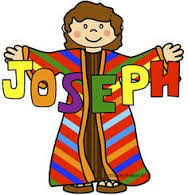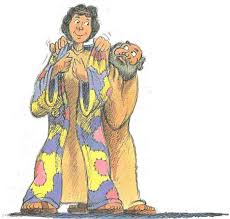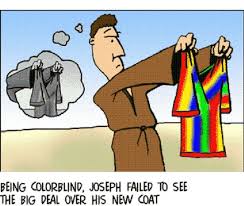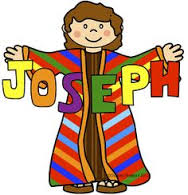I vividly remember being in Vacation Bible School when I was handed a coloring sheet of Joseph and his Coat.

My classmates and I heard the bible school, sugar coated version of why Joseph received this elaborate coat from his father; He was Jacobs favorite. At the time that seemed like a logical answer to me, and I never really questioned it until reading Josephs’ story starting in Genesis 37 on my own. Closer reading raised a very central question: Why was Joseph the favorite if he wasn’t Jacob’s first born?
I always assumed that the first born got the “favorite child award” in the Bible. Joseph was the eleventh son of Jacob. What made him so special? Scripture clearly states why.
“Israel loved Joseph more than any other of his children, because he was the son of his old age; and he had made him a long robe with sleeves. But when his brothers saw that their father loved him more than all his brothers, they hated him, and could not speak peaceably to him” (Gen 37:3-4).
This lead to another question: If Jacob loved him because he was young, why wouldn’t Benjamin, the youngest son be his favorite? According to Moshe Reiss in his Bible Commentary, “It would be difficult for Jacob to love his son Benjamin more than Joseph since in his birth his beloved wife died. From the day of Joseph’s birth, Rachel’s first-born son conceived after thirteen years of barrenness (and twenty years after they first met and fell in love with each other), was `royally’ raised.” Jacob labored fourteen years for Rachel, so he cherished his first-born from her.
Jacob realized Joseph’s gift of interpreting dreams and knew he was sent to fulfill God’s covenant to Abraham. This covenant was that Abraham’s seed would bring about many nations, kings and rulers would be among them.
“This is my covenant with you: I will make you the father of not just one nation, but a multitude of nations!” (Genesis 17:4).
“I will give you millions of descendants who will represent many nations. Kings will be among them.” (Genesis 17:6).
It’s no coincidence Joseph means “he may add” in Hebrew since he would soon become part of the Pharaoh’s council, leading Egypt through the famine while continuing the family line.
The most obvious symbol of Jacob’s favoritism was the coat of many colors he made for Joseph.

If taken literally, this coat would draw much attention to Joseph considering he would be surrounded in people in cloaks made of a neutral colored wool.
Although color is a major theme in the Bible there is historical evidence that proves two reasons may be given for the indefiniteness of many of the Biblical references to color:
(1) The origin of the Hebrew people:
They had been wandering tribes or slaves with no occasion to develop a color language.
(2) Their religious law:
These forbade expression in color or form (Exodus 20:4).

NRSV: “A long robe with sleeves.”
KJV: “A coat of many colours.”
NIV: “A richly ornamented robe.”
CJB: “A long-sleeved robe.”
NAB: “A long tunic.”
NJB: “A decorated tunic.”
The two words appear again in 2 Samuel 13:18 to describe a special garment worn by the daughters of kings: “Now [Tamar] was wearing a long robe with sleeves; for this is how the virgin daughters of the king were clothed in earlier times” (2 Samuel 13:18).
Since Jacob made Joseph a ketonet passīm, it must mean Jacob must have seen his son as royalty and above his brothers.

With or without the color symbolism of Joseph’s coat, there was great reason for Jacob to favor him. Joseph allowed for Abraham’s covenant with God to be fulfilled, which is all Jacob wanted.
